Under Florida Law: Essential Onboard Requirements for Towing a Water-skier
Boating enthusiasts in Florida often enjoy water sports, such as water-skiing. Ensuring the safety of both the water-skier and the boat operator is crucial. As such, Florida law outlines specific requirements that need to be met by boats towing water-skiers. One of these requirements focuses on maintaining proper visibility of the water-skier while they are being towed.
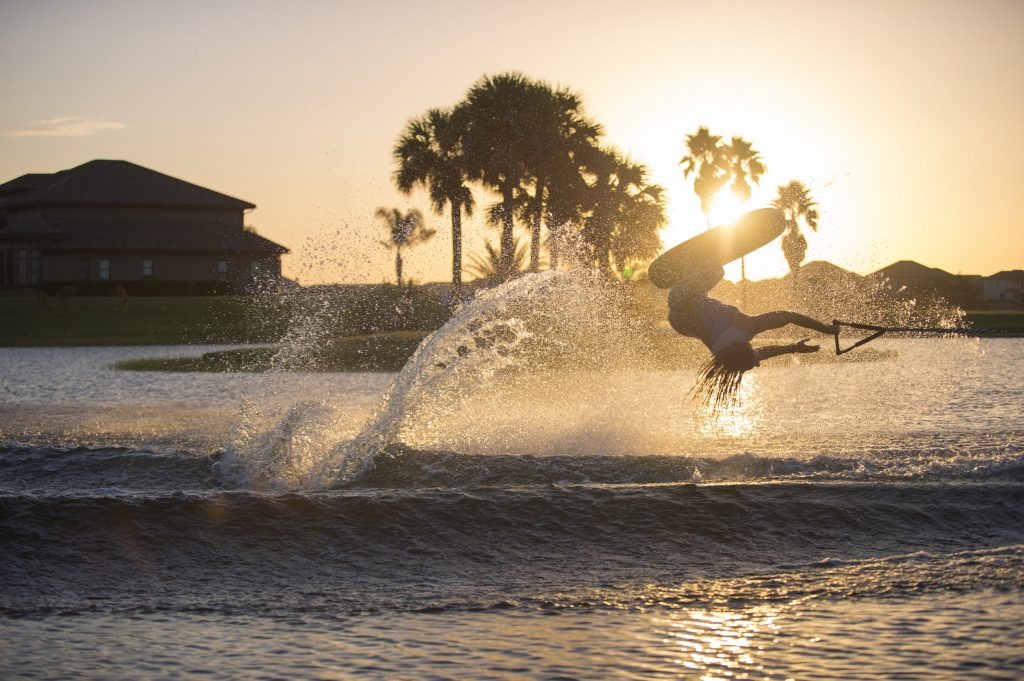
Under Florida law, a boat towing a water-skier must have either a wide-angle rearview mirror or an observer onboard. The observer, if opted for, must be in a position to properly monitor the water-skier's progress and relay any necessary information to the boat operator. This stipulation helps reduce the risk of accidents and ensures that the boat operator can respond promptly to the skier's actions or changes in their environment.
The boat operator must also adhere to several other guidelines and regulations while towing a water-skier, with the main focus being safety. Failure to follow these rules can result in penalties, and maintaining a safe environment is essential for everyone involved in water-skiing activities.
Key Takeaways
- A boat towing a water-skier in Florida must have a wide-angle rearview mirror or an observer onboard.
- The safety of both the water-skier and the boat operator is of utmost importance.
- Following Florida law and guidelines can help prevent accidents and ensure an enjoyable experience for all involved.

Under Florida Law
Legal Requirements on the Vessel Operator
Under Florida law, specific requirements must be met when towing a water-skier. The operator of the vessel must ensure that a person on board is acting as an observer, or the boat must be equipped with a wide-angled rearview mirror. This ensures the operator can maintain a clear view of the water-skier at all times. Additionally, every person water-skiing must wear a USCG-approved non-inflatable PFD (personal flotation device).
Visibility: Sunrise to Sunset
In Florida, water-skiing activities are only allowed between sunrise and sunset. This regulation is in place to ensure proper visibility and safety for both the water-skier and the vessel operator. Boating and water-skiing during hours of darkness can create hazardous situations due to decreased visibility.
Size and Length Considerations
When towing a water-skier in Florida, it is essential to consider both the size and length of the vessel being used. For boats less than 26 feet in length, additional safety precautions must be taken. For example, all children under six years old must wear a USCG-approved life vest at all times while on board. Furthermore, when towing a water-skier with a vessel of this size, the operator must remain vigilant, ensuring proper communication with the water-skier and paying attention to their surroundings.
Following Florida law when towing a water-skier helps ensure a safe and enjoyable experience for all parties involved. Boat operators should adhere to these regulations and remain mindful of visibility, vessel size, and safety equipment requirements.

Safety Requirements
Personal Flotation Devices
It is crucial to have appropriate personal flotation devices onboard when towing a water-skier in Florida. According to the Florida Fish and Wildlife Conservation Commission, every person on board under the age of 6 must wear an approved Type I, II, or III personal flotation device while the vessel is underway. Additionally, the water-skier themselves must wear an approved Type I, II, or III PFD. Inflatable PFDs are not permitted for this activity.
Observer and Rear-View Mirror
For maintaining safety while towing a water-skier, Florida law mandates the presence of an observer on the boat. The observer should be responsible for watching the water-skier and communicating any issues to the boat operator. Alternatively, the boat can be equipped with a wide-angle rear-view mirror that allows the operator to monitor the water-skier without relying on a designated observer.
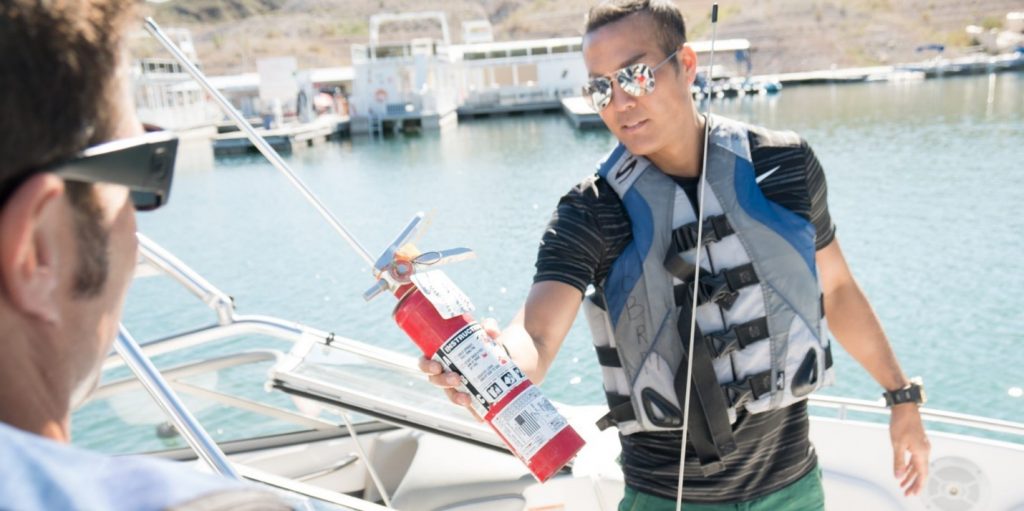
Fire Extinguishers and Distress Signals
It is essential to have fire extinguishers on board, as well as visual distress signals. In case of an emergency, a fire extinguisher will help to control a fire on the vessel. Visual distress signals, such as flares and flags, are necessary for communicating with other boats or rescuers in order to seek assistance. The exact requirements for carrying USCG-approved fire extinguishers and visual distress signals depend on the size and type of the vessel being used.
Speed and Navigation Rules
When towing a water-skier, adherence to speed limits and navigation rules is vital for ensuring safety on the water. Boats should follow the U.S. Coast Guard Navigation Rules to prevent accidents and ensure a smooth journey. In Florida, it is important to maintain a safe distance from other vessels, swimmers, and obstructions in the water while towing a water-skier. Additionally, the vessel operator is responsible for maintaining a safe speed to minimize the risk of accidents or injuries.
Pre-Aquaplaning Guidelines
Pre-Aquaplaning Equipment
When towing a water-skier in Florida, it is essential to have the necessary equipment on board your boat to ensure safety and abide by state laws. One crucial requirement is having a wide-angled rearview mirror or an observer on board the vessel to monitor the progress of the person being towed source. This ensures the operator can maintain control while keeping an eye on the water-skier at all times.
It's also important to have appropriate life jackets available for all individuals participating in the activity. Florida law requires every person skiing or aquaplaning to wear a USCG-approved Type I, II, or III personal floatation device (PFD). Inflatable PFDs are not permitted in this scenario source.

Aquaplaning Device Requirements
Aquaplaning devices such as water skis or similar equipment need to meet certain requirements to ensure the safety of both the boat operator and the person being towed. For example, oars and paddles can be dangerous to use as aquaplaning devices due to their lack of buoyancy and stability.
Type I PFDs are designed for offshore use and offer the highest level of flotation. Type II PFDs are suitable for near-shore activities, while Type III PFDs provide adequate buoyancy for calm inland waters. It's important to select the correct life jacket type based on the body of water and the specific towed activity the participant will be engaging in.
It is worth noting that Type IV and Type V PFDs are not suitable for water-skiers or aquaplane users. Type IV PFDs are throwable devices like cushions or life rings while Type V PFDs are specialized for specific uses, such as kayaking or waterboarding.
By following these pre-aquaplaning guidelines and abiding by Florida law, boat operators and water-skiers can enjoy a safe and enjoyable experience on the water.

Respect for Marine Life
Florida's boating laws emphasize the importance of respecting marine life while participating in water activities, such as towing a water-skier. One key aspect of these laws is the protection of marine mammals, such as manatees. It is crucial for boaters to be aware of the potential harm their activities might cause to these sensitive species.
Harassing, hunting, or killing any marine mammal is strictly prohibited under Florida law. Violators may face severe consequences, including fines up to $50,000. This hefty penalty reflects the state's commitment to conservation and the protection of its precious marine resources.
While towing a water-skier, it is vital to have the required equipment on board as per Florida law. This includes a throw rope made of polypropylene, which ensures the skier's safety and minimizes the risk of accidents that could potentially harm marine life.

In addition to following these regulations, boaters should also practice responsible boating behavior. This includes maintaining a safe distance from marine mammals, avoiding areas where they are known to congregate, and keeping an eye out for any signs of distress. By doing so, those participating in water sports can enjoy their activities without posing a threat to Florida's diverse marine ecosystem.
In summary, respecting marine life while towing a water-skier is essential for the preservation of Florida's unique aquatic environment. By adhering to state laws and taking additional precautions, boaters can help safeguard the well-being of the many marine species that call Florida's waters home.

Drugs, Alcohol and Boating
Operating a boat while under the influence of alcohol or drugs is a serious offense in Florida. It is important for boaters to be aware of the laws regarding drugs, alcohol, and boating to ensure the safety of everyone on the water.
In Florida, it is not against the law to have an open container on a boat, unlike in a car. However, the intoxication levels are the same for both instances. Boating under the influence (BUI) is illegal and can result in severe consequences, including massive fines and jail time 1.
Florida law states that any person operating a boat on its waters is deemed to have consented to be tested for impairment due to alcohol, drugs, or other intoxicating substances. Refusal to submit to testing is illegal and can lead to a $500 fine 2.
Florida's boating laws are enforced by officers of the Florida Fish and Wildlife Conservation Commission, as well as other law enforcement agencies. Officers have the authority to stop and board vessels to ensure compliance with the boating laws and regulations 3.
It is essential for boaters to remain vigilant and refrain from consuming drugs or alcohol while operating a boat, especially when towing a water-skier. Not only is it illegal, but it also puts everyone on the water at risk for injury or even death.

Accidents and Penalties
Reporting an Accident
In Florida, it is crucial for boat operators to report boating accidents promptly. If a collision or other incident involving the boat and water-skier occurs, the boat operator must immediately contact law enforcement authorities. This ensures proper investigations, helps prevent further accidents, and maintains the overall safety of the waterways.
Fines and Penalties
Regulations surrounding water-skier towing in Florida are strict and pose serious consequences for those who disregard them. The maximum penalty for failing to comply with Florida's boating laws, specifically those related to towing a water-skier, can result in significant fines. For instance, the harassment, hunting, or killing of any marine mammal, such as a manatee, carries a maximum fine of $50,000.
Furthermore, all watercraft used for towing water-skiers must be equipped with the appropriate safety gear, including life jackets. According to Florida law, children under 6 years of age must wear a Type I, II, or III USCG-approved life jacket/personal flotation device (PFD) at all times when cruising on any vessel less than 26 feet in length. Failure to comply with these regulations can result in fines, penalties, and legal repercussions.
In summary, abiding by Florida's boating regulations helps ensure the safety of all waterway users, including water-skiers. Boat operators should always prioritize the well-being of their passengers, follow the rules, and take necessary precautions to avoid accidents and penalties.
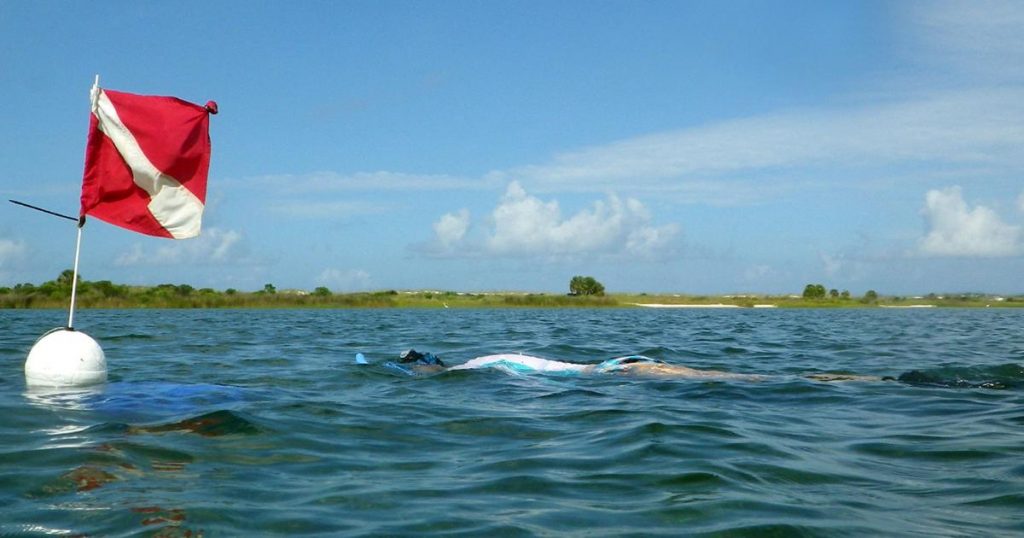
Unique Considerations in Florida
Divers-Down Flag
In Florida, boaters must be aware of and adhere to specific regulations related to divers. When divers are in the water, a divers-down flag must be displayed on the boat or a buoy at the dive site. The flag should be clearly visible from all directions and help other boaters recognize that people are diving nearby. This precaution ensures the safety of both divers and boaters, as it alerts nearby vessels to slow down and maintain a safe distance from the dive area.
Vessel Registration in Florida
Florida law requires all vessels to have a valid certificate of registration when in use or underway. The boat's registration and validation decals must be properly displayed according to the Florida Fish and Wildlife Conservation Commission (FWC) regulations. Ensuring proper vessel registration is essential for maintaining maritime safety, helping FWC officers identify and track vessels, and supporting various marine-related initiatives in Florida.
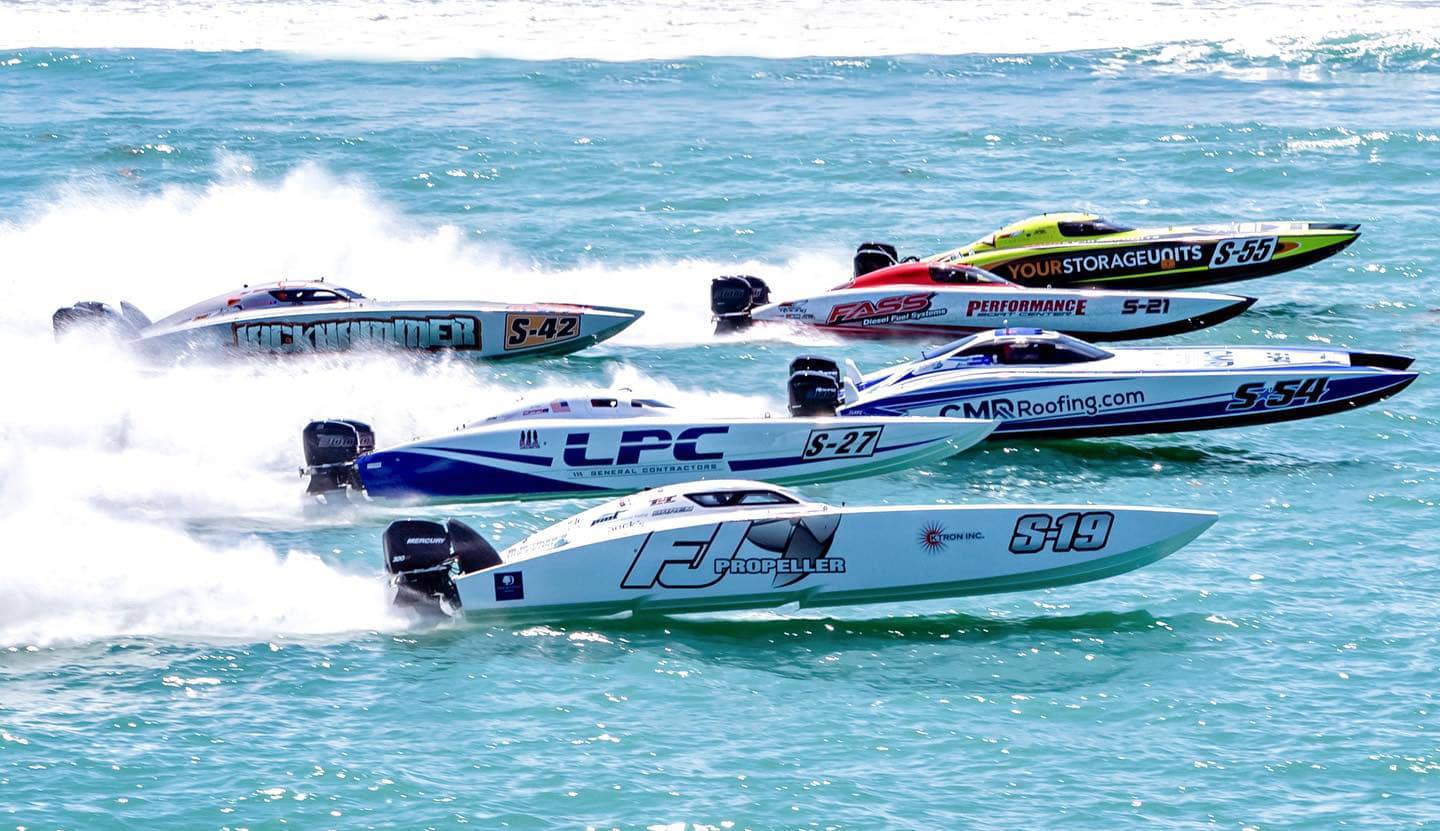
Events on Florida Waters
Florida waters are home to various aquatic events, including tournaments, marine parades, exhibitions, and boat races. To organize and hold such events, organizers must obtain a permit from the FWC. The permit application process ensures that events are conducted safely and with minimal disruption to other boaters and the environment. Additionally, permits help coordinate the use of Florida's waterways, specifically inlets and rivers, by defining controlled areas and specifying safety measures during events.
Following these unique considerations under Florida law not only enhances water safety but also helps maintain a positive and enjoyable boating experience for all users of the Sunshine State's waterways.
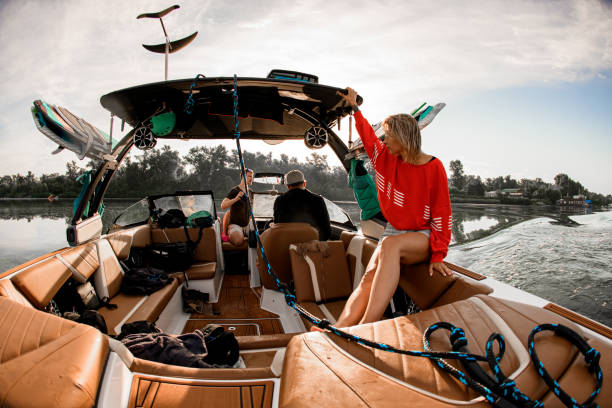
Frequently Asked Questions
What equipment is required on a boat for towing water-skiers?
When towing a water-skier in Florida, the boat must have either a wide-angle rearview mirror or an observer on board to monitor the safety of the skier. This ensures that the boat operator is aware of the skier's position at all times and can respond to any potential hazards or issues promptly source.
What are the safety regulations for towing water-skiers in Florida?
The safety regulations for towing water-skiers in Florida require that every skier or person aquaplaning must wear an approved Type I, II, or III personal flotation device (PFD). Inflatable PFDs are not allowed in this situation source.
What is the minimum legal age to operate a boat while towing a water-skier in Florida?
There is no minimum age requirement for operating a boat in Florida. However, any person born on or after January 1, 1988, must have proof of boating safety education to operate a vessel with a motor of 10 horsepower or more source.
Are there any specific flags or signaling devices required when towing a water-skier?
There are no specific flags or signaling devices mentioned in the given search results for towing water-skiers in Florida. However, it is essential to follow general boating safety rules and stay alert to communicate with other boaters when towing a skier.
What speed restrictions apply to boats towing water-skiers in Florida?
The search results do not provide specific information about speed restrictions for boats towing water-skiers in Florida. However, boat operators are expected to maintain a safe speed based on the conditions and should adjust their speed accordingly to ensure the skier's safety and the safety of others on the water.
What are the alcohol consumption regulations for boat operators towing water-skiers in Florida?
While the search results do not provide exact information regarding alcohol consumption for boat operators towing water-skiers, it is vital to follow general boating safety guidelines and ensure that the boat operator is not impaired by alcohol or drugs while operating the boat. It is essential to prioritize the safety of the skier and others on the water.
Footnotes
- Florida Boating and Drinking Laws: What You Need to Know ↩
- Florida's Boating and Alcohol Laws - BOATsmart! Knowledgebase ↩
- Boating Regulations | FWC - Florida Fish and Wildlife Conservation ↩
Charlie is Editor-in-Chief of Sea Magazine